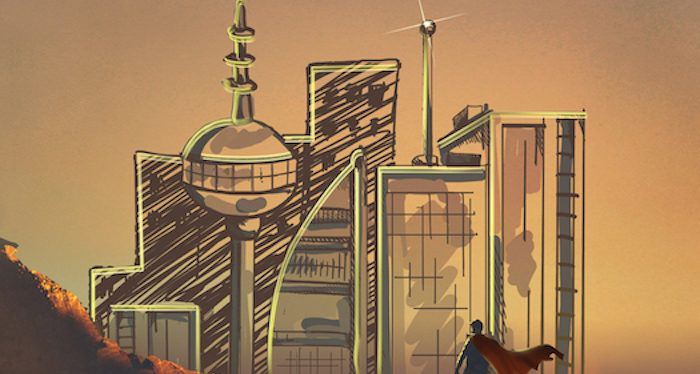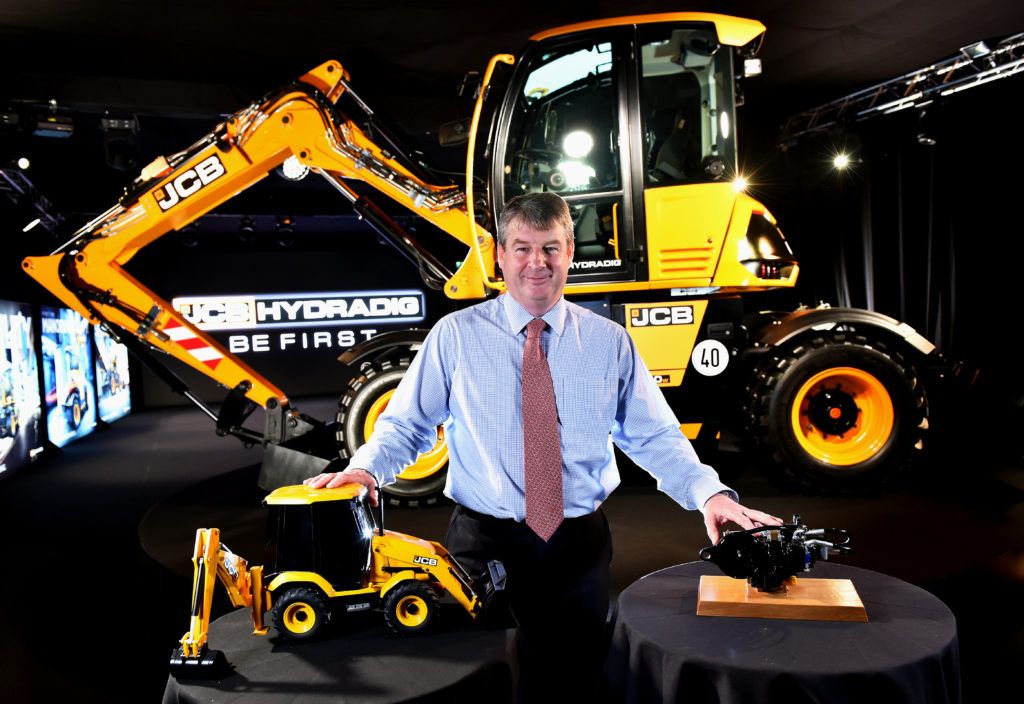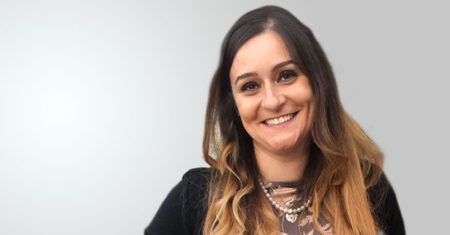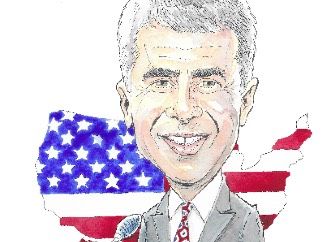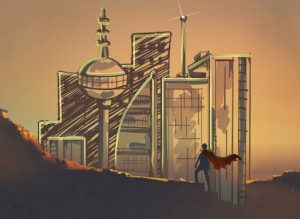 Michelle Doolan (below), a civil engineer at Aurecon, argues that engineering is far more than a job. Engineers are the shapers and problem solvers of our collective future. It’s about seeing the world at it is and believing we can improve upon it.
Michelle Doolan (below), a civil engineer at Aurecon, argues that engineering is far more than a job. Engineers are the shapers and problem solvers of our collective future. It’s about seeing the world at it is and believing we can improve upon it.
You don’t have to sit a five-year-old down and teach her the physical and psychological benefits of building forts. Chances are, she has wrecked your lounge many times before. Written into the defaults of our DNA is the impulse to create ̶ to bring something that never was into being.
Take away the plastic weapons of mass destruction from your toy box, and watch your toddler turn his peanut butter sandwich into a gun. Beach sand becomes castles; snow days invite igloos; the world is a wonderful palette that kids just intuitively want to paint on. Essentially, the engineer is hidden inside all of us.
The question for us engineers who still hold the title is, are we still living like one?
We may need to be reminded from time to time, that the job of an engineer is a great one. By comparison to some of the other professions, engineering is often not seen as the cool one. TV shows like LA Law and Boston Legal glamorise legal eagles battling it out in high profile court cases. ER, House and Scrubs bring the world of medicine into our living rooms. Even Grand Designs puts architecture on a pedestal. Isn’t it about time that TV producers got in touch with the profession that is shaping the future world we live in like no other?
As a discipline, it lies at the very fabric of our society, shouldering the systems and spaces that give our world its meaning. Too often the profession is associated with hard hats and tool belts, viewed as difficult and esoteric. But in reality, engineering is a far cry from ‘restrictive’ and ‘routine’. It is alive and multidimensional, unleashing the power of connected societies to unlock the impossible.
Engineering invades every domain and asks the question, ‘how can we make this space into something fantastic?’ To be an engineer is to be nothing less than the shapers and problem solvers of our collective future.
We get to do this
Confucius said, “Choose a job you love, and you will never have to work a day in your life.” In spite of the many challenges and demands, the job of a passionate engineer should often feel like play. Edges are invitations; and we, of all people, should welcome the thrill of stepping off the ledges of previous paradigms to see what new support systems open up beneath us.
Every day, we get to blend new technologies into the world around us. Big data helps us gain new insight into people’s needs, which in turn fuels new design that facilitates healthy and sustainable workflows and social interactions. All the more, we are called to create new virtual reality visions of the future, which anticipate the ‘what if’s’ and puts the unknowns at ease. We get to reimagine energy as we know it and tinker with a thousand unimaginable ways to address some of the single-most important issues of our day.
If we are going to remain agile and imaginative in our approach to urban co-creation and problem solving, then engineering needs to stay fun and occasionally open to failure. If we subscribe to methodologies that resist change and reward bottom line only, we will dangerously stay too neatly within the lines.
We pen the story
Whether it be a mass transit system, a power system, a water network or a building, engineers are asking the question, ‘how will this infrastructure be relevant in the future?’ We have the privilege to keep reshaping life into systems and spaces that breed more life. Every day we are faced with the opportunity to look at issues through new lenses and improve upon historic archetypes.
Take the example of Elon Musk, whose invention of the Tesla electric car presents itself like a lifeline to the sinking ship we call today’s fossil fuel-dependent automotive industry. His passion to reduce global warming has pushed open major doors in solar energy and cracked the ceiling of our paradigms ̶ even to include outer space. Thanks to Musk’s SpaceX program, some of us are now googling how to grow vegetables on Mars.
Good engineers steward safe boundaries. Great engineers push them wider to the benefit of society. Game changers such as Mark Zuckerberg have altered the stakes of social engagement worldwide through Facebook’s far-reaching and immediate ability to connect people around the world. IDEO is pioneering concepts around people at the centre of design and economies of circular value. And because they have a sobering understanding of the responsibility which goes hand-in-hand with crafting community, they don’t easily back down.
Zuckerberg has used his unique position to pledge 99% of his lifetime Facebook shares (worth about $45 billion) to “advance human potential and promote equality in areas such as health, education, scientific research and energy”. As “impatient optimists working to reduce inequity”, the Gates Foundation has so far given away $35 billion to ‘take on the really tough problems’ of hunger, disease and poverty. At their core, engineers are pioneers who create platforms to propel humanity upward and onward.
We can create it!
 Engineering is a constant exercise in diagnosis and treatment. We identify the pain points of society; we prescribe the remedies; and then we even get to deliver the solutions ourselves.
Engineering is a constant exercise in diagnosis and treatment. We identify the pain points of society; we prescribe the remedies; and then we even get to deliver the solutions ourselves.
Every day the hand of the engineer provides enormous benefit to communities ̶ whether that be in the form of a surgeon performing ground-breaking fibre optic treatment, or something as commonplace these days as an overseas Skype call using broadband or fibre network.
Biomedical engineers are developing artificial hearts and giving amputees a new spring in their step. And leaders of science, technology and innovation are carrying the keys to unlocking poverty alleviation and meeting the basic human needs of adequate food, clean drinking water, sanitation, good health provision, shelter and education.
Through tight collaboration with government, business leaders, academic institutions and the public at large, we can lead true change by painting wide-stroke solutions over societal problems. We carry cutting edge solutions and skills that embed the systems and smart technologies carving out our future urban ecosystems. It’s to everyone’s detriment when we fail to step up and lead.
The ERA Foundation encourages engineers “to be proud to leave their mark… to shake off their ‘behind the scenes’ identities and become ambassadors that talk proudly about the full range of work and sectors they are involved in.” This is not a time for false humility; it’s a time to let our capes fly. Engineering is far more than a job. It’s a way of seeing the world and believing we can improve upon it. The degree to which we own our superhero status in the collective story is the degree to which we all win.
This post originally appeared on Aurecon’s award-winning Just Imagine blog, which provides a glimpse into the future for curious readers, exploring ideas that are probable, possible and for the imagination.


